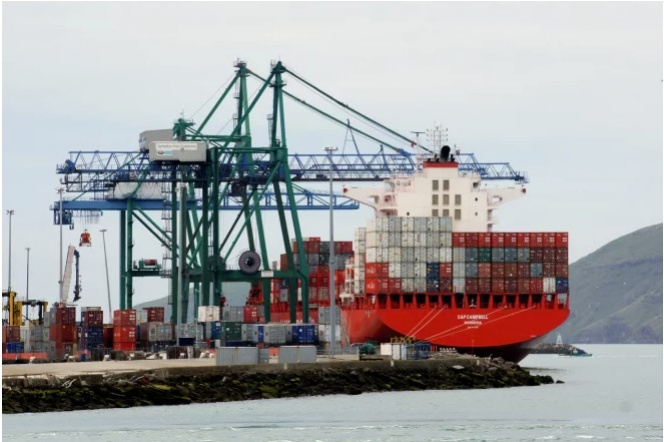Date added: 2022-02-10
A new solution for ultra-large container ships

As part of the twin-crp-pod ULCS project, scientists from the Institute of Ocean Engineering and Ship Technology at the Faculty of Mechanical Engineering and Ship Technology are working on the use of a hybrid crp-pod propulsion on ultra-large two-propeller container ships.
The aim of the project is to minimize fuel consumption, improve maneuverability and increase navigation safety by introducing three innovative solutions for ultra-large container ships (ULCS): two-propeller configuration, azimuth thrusters and counter-rotating propellers.
Hybrid system instead of a conventional one
Importantly, conventional marine propellers have low efficiency. Most of them waste about 40 percent of energy in the form of axial losses, vortex generation, noise production, cavitation etc. Recovery of such losses will contribute to a greater, rational and environmentally friendly use of energy.
–The idea behind our project was to turn a classic drive system into a hybrid system. Instead of the conventional shaft propellers alone, there will be two pod propellers behind them and each will turn in the opposite direction to the shaft propeller. Each of these individual solutions is characterized by greater drive efficiency. We want to check whether by applying the three solutions together we are able to achieve an increase in driving efficiency, and how big it would be – emphasizes MSc. Hanna Pruszko from the IOEST.
The tests will be carried out using advanced numerical CFD methods and in a modern towing pool. The maneuvering tests will be carried out using large manned models on a natural lake.
Project consortium:
Gdańsk University of Technology
Foundation for Shipping Safety and Environmental Protection (Poland - project coordinator)
Seatech Engineering Ltd. (Poland)
Hamburgische Schiffbau-Versuchsanstalt GmbH (Germany)
Center of Marine Technologies (Germany)
BRABO (Belgium)
Piening Propeller (Germany)
At Gdańsk University of Technology a team of scientists from the Department of Hydromechanics and Hydroacoustics of the Ship, headed by Paweł Dymarski, PhD, DSc, Eng. professor at Gdańsk Tech, works on the project . The works are to b

